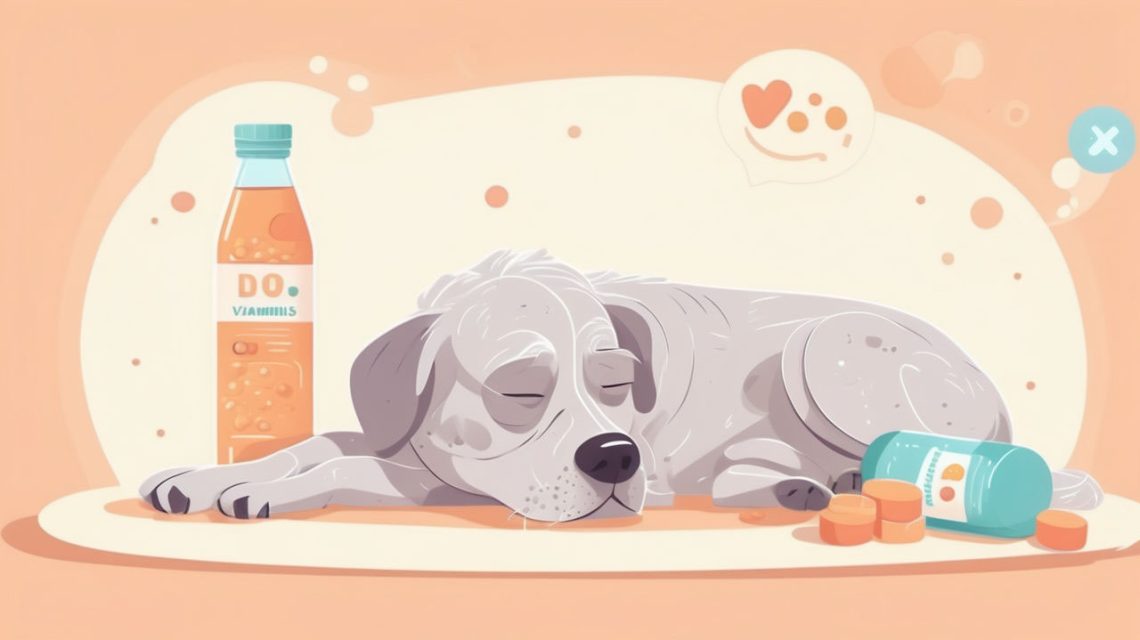Caring for a Geriatric Dog: Essential Tips for Senior Pet Health
As dogs age, their needs change, and it’s important for pet owners to understand how to care for their senior companions. A geriatric dog requires extra attention and care to ensure they live a comfortable, healthy life during their golden years. Just like humans, aging dogs experience physical and mental changes that affect their mobility, energy levels, and overall well-being.
In this guide, we’ll explore the key aspects of caring for a geriatric dog, including diet, exercise, and regular veterinary care. By understanding the specific needs of senior dogs, you can help your aging pet stay happy and healthy for as long as possible.
Signs Your Dog Is Entering Their Senior Years
Not all dogs age at the same rate. Smaller breeds tend to live longer than larger ones, so what counts as “senior” varies by size and breed. However, most dogs are considered geriatric around 7 to 10 years old. It’s important to watch for the signs of aging so you can adjust your care routine accordingly.
1. Slowing Down
One of the first noticeable signs of aging is reduced energy levels. Your dog may be less eager to play or take longer to get up from lying down. Joint stiffness, especially in the morning, is common as dogs age.
2. Changes in Weight
As dogs age, they may either gain weight due to decreased activity or lose weight due to health issues. Maintaining a healthy weight is crucial, as obesity can exacerbate joint problems and other age-related conditions.
3. Vision and Hearing Loss
Many senior dogs experience diminished vision or hearing. They may not respond as quickly to commands or seem more startled by sudden movements. If your dog seems to struggle with vision or hearing loss, making adjustments in their environment can help them navigate more easily.
4. Increased Sleeping
A geriatric dog tends to sleep more than they did in their younger years. While more rest is natural, extreme lethargy could indicate underlying health issues, so it’s important to monitor their behavior and consult your vet if needed.

Health Care for Geriatric Dogs
One of the most important parts of caring for an older dog is ensuring they receive regular veterinary care. Geriatric dogs are more prone to health problems, so frequent vet visits are crucial for catching potential issues early.
1. Regular Vet Checkups
While adult dogs typically need an annual checkup, geriatric dogs may require visits every 6 months. During these visits, your vet will check for common senior dog issues such as arthritis, dental disease, and organ function decline.
- Blood Tests and Screenings: Your vet may recommend blood tests to monitor kidney, liver, and thyroid function, as these organs are more susceptible to problems in older dogs.
- Dental Care: Oral health becomes more important as dogs age. Regular dental checkups and cleanings help prevent pain, tooth loss, and infections that can impact overall health.
2. Managing Arthritis and Joint Pain
Arthritis is one of the most common conditions affecting senior dogs. As joints wear down, inflammation and pain can limit mobility and quality of life. Fortunately, there are several ways to manage arthritis in geriatric dogs:
- Joint Supplements: Glucosamine and chondroitin supplements can help support joint health and reduce inflammation.
- Pain Management: Your vet may prescribe medications such as anti-inflammatory drugs or recommend alternative therapies like acupuncture.
- Comfortable Bedding: Provide soft, supportive bedding that cushions your dog’s joints and makes it easier for them to get comfortable.
Nutrition for Geriatric Dogs
As your dog ages, their nutritional needs change. Geriatric dogs require a diet that supports their aging bodies while avoiding excess calories that can lead to weight gain.
1. Senior Dog Food
Many pet food brands offer senior-specific formulas that are lower in calories but rich in nutrients to support joint health, digestion, and immune function. These formulas often include added fiber, antioxidants, and omega-3 fatty acids to promote overall well-being.
2. Maintaining a Healthy Weight
Obesity can worsen many age-related conditions, including arthritis and heart disease. It’s important to monitor your dog’s weight and adjust their diet as needed. If your dog is overweight, consult your vet to develop a safe weight loss plan that includes portion control and appropriate exercise.
3. Addressing Specific Health Concerns
Some senior dogs may have specific dietary needs due to health conditions like kidney disease or diabetes. In these cases, your vet may recommend a prescription diet tailored to manage these conditions and prevent further complications.
Exercise and Mental Stimulation for Geriatric Dogs
While your geriatric dog may not have the same energy levels they did as a puppy, regular exercise and mental stimulation are still important for keeping them healthy and engaged.
1. Gentle, Low-Impact Exercise
Exercise is essential for maintaining mobility and preventing muscle loss in older dogs. However, the intensity and duration of exercise should be adjusted to suit their physical capabilities.
- Short Walks: Take your dog on shorter, more frequent walks instead of long, strenuous outings.
- Swimming: If your dog enjoys water, swimming is an excellent low-impact exercise that’s gentle on the joints while providing a full-body workout.
2. Keep Their Mind Active
Mental stimulation is just as important as physical exercise, especially as dogs age. Engaging your dog’s mind helps prevent cognitive decline and keeps them sharp.
- Interactive Toys: Puzzle toys or treat-dispensing toys can keep your dog entertained while challenging their problem-solving skills.
- Training and Games: Continue to engage your dog with training exercises and simple games. Even older dogs can learn new tricks, which helps stimulate their brain and strengthens your bond.
Adjusting Your Home for a Geriatric Dog
As your dog ages, certain modifications to their living environment can make them more comfortable and help them navigate their home more easily.
1. Ramps and Stairs
If your dog struggles to jump onto furniture or climb stairs, consider adding ramps or pet stairs to make movement easier and reduce strain on their joints.
2. Orthopedic Bedding
Invest in a comfortable, orthopedic bed that supports your dog’s aging joints. Orthopedic beds are designed to provide better weight distribution, helping alleviate pressure points and making it easier for your dog to rest.
3. Keep Food and Water Accessible
Ensure that your dog’s food and water bowls are easily accessible, especially if they have mobility issues. Raised bowls can help dogs with arthritis or neck pain eat and drink more comfortably.
FAQs About Geriatric Dog Care
How can I tell if my dog is in pain?
- Signs of pain in geriatric dogs can include limping, reluctance to move, whining, or changes in behavior such as aggression or withdrawal. If you suspect your dog is in pain, consult your vet for an evaluation.
Should I change my dog’s food as they get older?
- Yes, senior dogs benefit from diets tailored to their age. Senior dog foods contain fewer calories and more nutrients to support joint health, digestion, and overall wellness. Your vet can recommend the best diet for your dog’s specific needs.
How often should I take my senior dog to the vet?
- Geriatric dogs should see the vet every six months for a checkup. More frequent visits may be needed if your dog has health issues such as arthritis, heart disease, or diabetes.
What are the signs of cognitive decline in older dogs?
- Cognitive decline, or doggy dementia, can manifest as disorientation, changes in sleeping patterns, confusion, or increased anxiety. If you notice these signs, speak with your vet about ways to support your dog’s cognitive health.
Can I still exercise my senior dog?
- Yes, exercise is important for maintaining mobility and mental health in older dogs. However, it should be low-impact and suited to their abilities. Short, gentle walks and swimming are great options.


